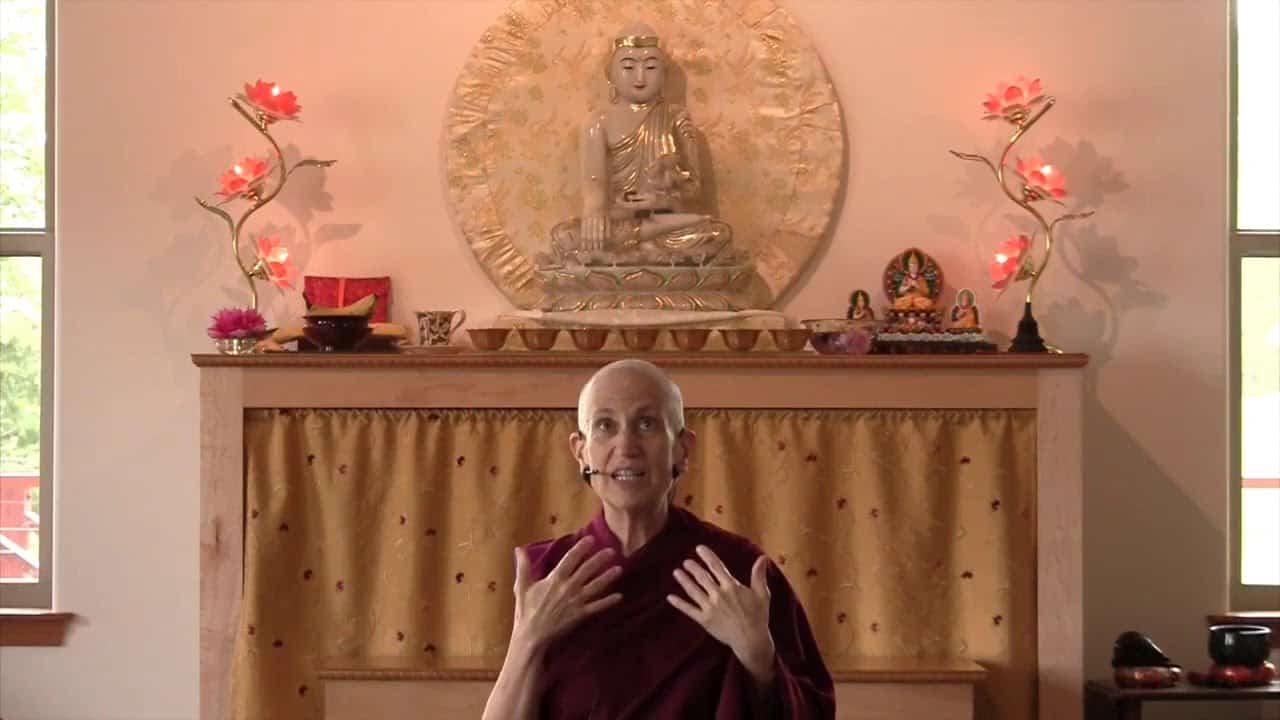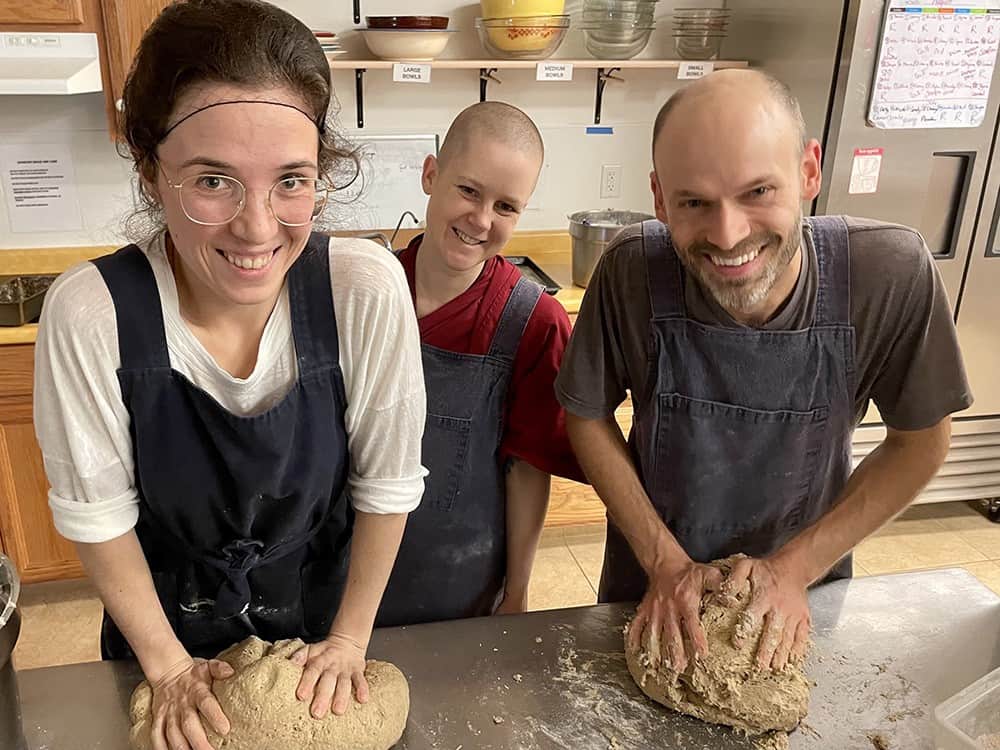Our motivation for eating
Inspired by a student's question, a commentary on the five contemplations before meals from the Chinese Buddhist tradition that are recited daily before lunch at Sravasti Abbey.
- The short-term motivation of nourishing our bodies
- The long-term motivation, the aim of buddhahood
- Eating with a bodhicitta motivation
A few days ago I received an email from Renee (one of our Dharma friends from Seattle whom I haven’t seen in ages) and she wants to do a blog or a book, something like that, called Buddha At My Table about Buddhist views about food and eating and things like that. So she wanted some input from me. What’s easier for me is to actually just give a series of talks about this.
The first thing we always start out with is the motivation. Why are we going to discuss this? Or, why are we going to eat? In the five contemplations that we do before we eat, that are from the Chinese Buddhist tradition, the last two particularly tell us why we’re eating and what our motivation is for eating.
I contemplate this food, treating it as wondrous medicine to nourish my body.
That’s one of the reasons we eat, we need to nourish our bodies. We’re not eating just for pleasure. We’re not eating so that we look healthy and we’re strong, and to have very good physical appearance to impress other people with. We’re eating to nourish our bodies and to maintain our lives. We see the food as medicine that helps us to do that. If you see the food as medicine, you see that it’s nourishing. Medicine…. Sometimes I like the flavor, sometimes I don’t, but it’s nourishing my body and that’s the point. That’s why we’re eating. But it’s not the only reason why we’re eating.
I contemplate the aim of buddhahood, accepting and consuming this food in order to accomplish it.
That’s the long-term purpose why we’re eating. The first one was the short-term. This is the long-term. Why do we want to nourish our bodies? Why do we want to keep our bodies alive? It’s so that we can practice the path and attain full awakening for the benefit of all sentient beings. His Holiness often says it’s good to pray for a long life, but only if you want to use your life to create virtue and to progress on the path. If you want a long life so you can do a lot of nonvirtuous stuff, then it doesn’t help you at all. Here, really seeing we want to nourish our bodies for the long-term purpose of attaining awakening. And not just our own awakening, but we want to work for the benefit of all sentient beings. We’re eating with a bodhicitta motivation. This is a very good example of applying bodhicitta to all of our everyday occurrences.
I find—because we do these lines every day when we offer our food—every day when I say these verses it’s like making a commitment: “Yes, this is why I’m eating. These people have offered the food out of the kindness of their hearts, because they believe in what we’re doing, and I have a commitment to them and to all sentient beings. My commitment is to progress on that path to full awakening for their benefit.” That’s our long-term motivation and purpose for eating. And of course to do that we have to keep our bodies healthy, so we have the first motivation of seeing the food as medicine that nourishes our bodies. Good to remember that’s our motivation for eating, to keep that in mind.
That’s to start out with for today. Tomorrow we’ll start at the beginning of the five contemplations, because the first three contemplations are kind of preparing us so that we have the right attitude for how to see the food before we start eating.
Venerable Thubten Chodron
Venerable Chodron emphasizes the practical application of Buddha’s teachings in our daily lives and is especially skilled at explaining them in ways easily understood and practiced by Westerners. She is well known for her warm, humorous, and lucid teachings. She was ordained as a Buddhist nun in 1977 by Kyabje Ling Rinpoche in Dharamsala, India, and in 1986 she received bhikshuni (full) ordination in Taiwan. Read her full bio.


